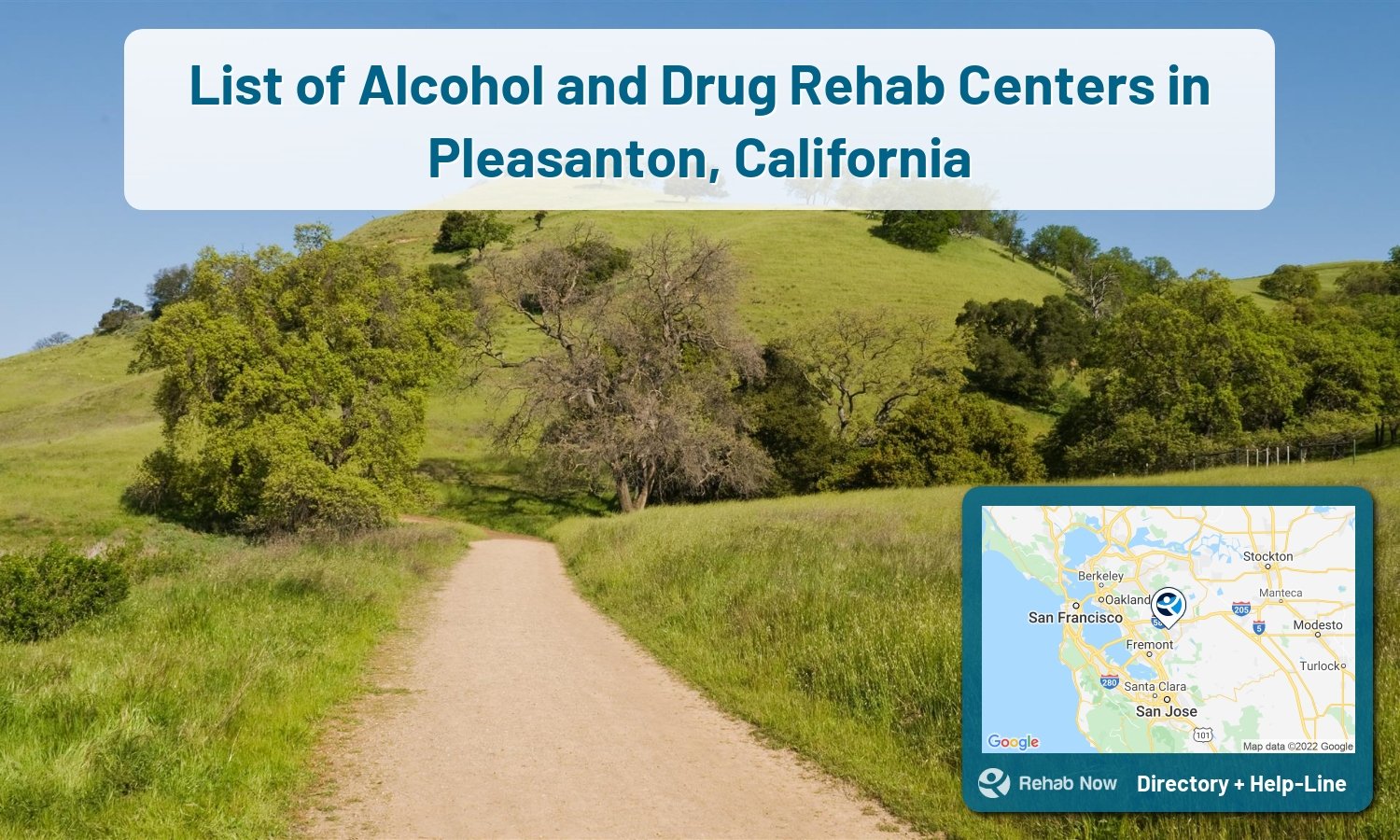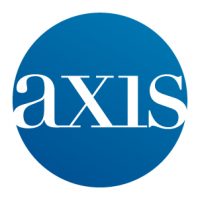List of Alcohol and Drug Treatment Facilities in Pleasanton, California
Drug addiction and abuse are growing problems in Pleasanton, California. There are a variety of drugs that are abused in the city, including alcohol, methamphetamine, cocaine, and marijuana. The abuse of these drugs can have a variety of negative consequences for the individual, such as addiction, criminal activity, job loss, and health problems.
Drug addiction can start with using drugs for recreational purposes, but it can quickly turn into a substance use disorder. When someone is addicted to a drug, they will continue to use it even though it may be causing them harm. Drug addiction can be a very difficult problem to overcome, but there are treatment options available that can help.
Search below and find all of the Rehab Centers in Pleasanton. We have listed hard to locate alcohol and drug rehab centers. There are opportunities for recovery and improved life in California with numerous drug and alcohol addiction programs available in Pleasanton.
Professional Assistance is only a call away
We will help you find treatment based on your location, budget, and specific needs and help you get started safely.
Free + Confidential Consultation
Browse 5 Centers in Pleasanton, California
Bay Area Community Services - Valley Wellness Center
The Bay Area Community Services - Valley Wellness Center provides comprehensive care for individuals suffering from addiction, dual diagnosis, and mental health issues since 1953, utilizing evidence-based approaches such as individual counseling, group therapy, medication management, yoga classes and mindfulness training while holding accreditation from CARF (Commission on Accreditation of Rehabilitation Facilities).

Axis Community Health specializes in treating addiction and offers personalized, evidence-based treatment plans that include various therapies and levels of care in Pleasanton, CA.
ACA Family Adult Child and Codependency Counseling
ACA Family Adult Child and Codependency Counseling is an addiction treatment facility in Pleasanton, California that specializes in comprehensive treatment for alcoholism, opioid addiction, substance abuse, and drug addiction, with a focus on family and codependency counseling, offering various levels of care, including outpatient treatment.
Valley Children & Youth Mental
Valley Children & Youth Mental is a specialized Addiction Treatment Facility in Pleasanton, CA dedicated to providing evidence based therapies, medication management, and a multidisciplinary approach tailored to each individual's needs for successful recovery from mental health issues.
AA - Alcoholics Anonymous - Tri-Valley Fellowship
Drug and Alcohol Treatment in Pleasanton, CA
The first step to recovery is admitting you have a problem. And in the case of addiction, the hardest part may be recognizing it for what it is. That’s because addiction can take many different forms and manifest itself in ways that are not always obvious. It can feel like something else: boredom, loneliness, depression, or anger management issues, for example. So it’s important to get an accurate diagnosis from a professional.

What Types of Treatment Are Available in Pleasanton, California?
There are a variety of drug treatment options available for someone looking to get sober in Pleasanton, California. Some popular treatments options include inpatient rehabilitation, outpatient rehabilitation, 12-step programs, and support groups.
Inpatient rehabilitation is a type of treatment where the patient lives at the rehab center while they receive treatment. This option is often recommended for people with more severe addiction problems.
Outpatient rehabilitation is a type of treatment where the patient does not live at the rehab center but comes in for treatment on a regular basis. This option is often recommended for people with less severe addiction problems.
12-step programs are Alcoholics Anonymous and Narcotics Anonymous programs that follow a 12-step process to recovery. These programs are often used to treat addiction problems.
Support groups are groups of people who come together to support each other in their recovery from addiction. These groups can be helpful for people who do not want to participate in 12-step programs or who need more support than what is offered in 12-step programs.
Drug Abuse Statistics in Pleasanton, California
In 2018, there were 477 admissions to treatment facilities for alcohol abuse in Pleasanton. The majority of these admissions were for people aged 18-24. Young people are particularly at risk for developing substance use disorders.
A study done in 2019 found that 6.3% of Pleasanton residents reported using illicit drugs in the past month. Most people who abuse drugs start with marijuana and prescription drugs. It was also found that 20.8% of residents reported binge drinking in the past month.
- 22% of DUI fatalities in the city involved drugs in 2017
- From 2013 to 2017, the number of methamphetamine lab seizures in California increased by 40%.
- 31% of California residents believe that prescription drugs are easy to obtain.
- 42% of alcoholics in treatment report that their families have a history of alcoholism.
Additional Treatment Centers in California
More than 3 million of California's citizens are addicted to illegal drugs. Almost 800,000 people use hard drugs, almost 5 million use marijuana, and another 2.1 million abuse alcohol every year. Other substance abuse issues such as binge drinking and teen drug use are also common. Many illegal drugs such as cocaine, heroin, methamphetamine, and marijuana are smuggled into the state from Mexico.
Still haven't found the right recovery center? Browse nearby California cities.
- Chula Vista, CA (440.8 mi.)
- Victorville, CA (335.3 mi.)
- Calabasas, CA (303.5 mi.)
- Lemon Grove, CA (437.0 mi.)
- Redlands, CA (362.7 mi.)
- Rancho Cordova, CA (70.2 mi.)
- Copperopolis, CA (70.1 mi.)
- Antioch, CA (23.0 mi.)
- Galt, CA (50.6 mi.)
- Walnut, CA (337.9 mi.)
- Norco, CA (354.5 mi.)
- McClellan Afb, CA (73.7 mi.)
- Los Angeles, CA (316)
- San Diego, CA (141)
- San Francisco, CA (128)
- San Jose, CA (95)
- Sacramento, CA (72)
- Oakland, CA (69)
- Fresno, CA (65)
- Long Beach, CA (59)
What Are the Risks of Not Getting Treatment?
The risks of not getting treatment for addiction can be deadly. In fact, untreated addiction is one of the leading causes of death in the United States. Moreover, addiction can impact every area of your life, from your physical and mental health to your relationships, career, and financial security.
Some of the risks associated with addiction include:
- Health problems. Addiction can lead to a whole host of physical health problems, including liver and kidney damage, heart disease, stroke, cancer, and lung disease. It can also contribute to mental health problems such as anxiety and depression.
- Accidents and injuries. People who are under the influence of drugs or alcohol are more likely to be involved in accidents. This includes car accidents, falls, and drowning.
- Relationship problems. Addiction can strain your relationships with family and friends. It can also lead to domestic violence and child abuse.
- Career problems. Addiction can make it difficult to keep a job. It can also lead to criminal behavior.
- Financial problems. Addiction can lead to financial difficulties as you may spend money on drugs or alcohol instead of bills, groceries, or rent. You may also be unable to work due to your addiction.
If any of these risks sound familiar to you, it’s time to get help.
What Types of Drugs Are Treated in Rehab?
Most rehab centers will treat all types of drugs, including alcohol. Some specialize in treating certain types of addiction, such as heroin or methamphetamine. But in general, any type of drug can be treated at a rehab center.
If you want to be sure of getting the best possible treatment for your addiction, then it is important to take the time to research your options. There are a few things you should look for in a rehab center:
Make sure the center is accredited by the Commission on Accreditation of Rehabilitation Facilities (CARF). This accreditation ensures that the center meets high standards for quality care.
Check to see if the center offers a variety of treatment options. A good rehab center has a variety of therapies, such as cognitive-behavioral therapy, group therapy, and individual counseling.
The staff should be qualified and experienced in treating addiction. The staff should include doctors, nurses, therapists, and counselors who are knowledgeable in the latest treatments for addiction.
What Kind of Insurance Do Rehab Centers Accept?
Most rehab centers accept private insurance. Some also accept government insurance, such as Medicaid or Medicare. If you don’t have insurance, some centers may offer sliding-scale fees based on your income.
You should call your insurance company to find out what kind of coverage they provide for addiction treatment. It’s also a good idea to call the rehab center to find out what type of insurance they accept.
What Is an Intervention?
An intervention is a meeting in which you confront someone about their addiction and try to persuade them to get help. It can be a difficult and emotional experience, but it’s often necessary in order to get someone to agree to treatment.
If you’re thinking about staging an intervention for a loved one, there are a few things you should know:
The intervention should be planned and organized by a professional interventionist.
You should invite only the people who are closest to the addict. Family members and friends should come prepared to share how the addiction has affected them.
The goal of the intervention is to get the addict to agree to treatment. It’s important to have a treatment plan in place before the intervention so that you can offer help immediately.
What Are the Chances of Relapse After Rehab?
The chances of relapse after rehab depend on a number of factors, such as the severity of the addiction, the length of time in treatment, and the type of treatment received. However, it’s important to remember that relapse is always a possibility.
That’s why it’s so important to have a solid support system in place after rehab. Friends and family can provide a crucial support system, but it’s also important to find support groups or therapy sessions to help you stay sober.
You must always maintain vigilance against relapse. Be prepared to face triggers and temptations, and have a plan in place for how you will deal with them. With a strong support system and a commitment to sobriety, you can overcome addiction and build a healthy, happy life.
Our experts can help you find treatment now in Pleasanton, California. We list drug rehab and alcohol centers in California. (888) 674-0062.



